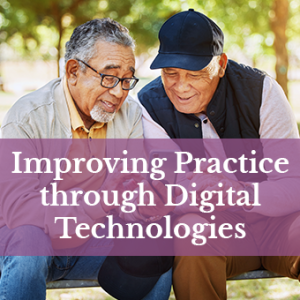Presenter(s):
Natasha Katunga, University of the Western Cape, South Africa
Abstract
By 2030, one in six people globally will be aged 60 or older, marking a significant demographic shift. This trend is increasingly evident in countries like South Africa, where life expectancy is rising. At the same time, rapid digital advancements are transforming access to essential services, such as healthcare, finance, education, and social engagement, making the digital inclusion of older adults (those aged 60 and above) a critical priority.
In South Africa, older adults remain among the most digitally vulnerable groups. Despite forming a growing share of the population, they receive limited attention in digital inclusion efforts, which tend to prioritise youth. While youth-focused initiatives are vital, especially given high youth unemployment, a truly inclusive digital society must also address the needs of older adults. This imperative aligns with the United Nations’ Decade of Healthy Ageing (2021–2030), which highlights the importance of lifelong learning and digital skills to support independence, decision-making, and social connection in later life.
In 2023, a participatory research initiative was launched to empower older adults in South Africa through digital skills development, enabling their meaningful participation in a digital society. The initiative recognises that digital inclusion goes beyond access, and that the needs and goals of older adults may differ from other demographic groups. The study was grounded in a needs assessment conducted in the Western and Eastern Cape, ensuring that the intervention reflected the lived experiences, needs, aspirations, and challenges of older adults.
While multiple stakeholders, including trainers, community-based organisations, researchers and government representatives, contributed to the project, older adults, as the primary stakeholders, were actively involved in co-designing a Mobile Digital Literacy (MDL) course tailored to their demographic. This helped ensure the intervention was both responsive and respectful. The choice of a mobile-first approach reflected the widespread use of mobile devices in South Africa. The course covers key digital competencies, including information management, communication, digital safety, problem-solving, and conducting digital transactions. The course was piloted in 2024 with two cohorts of older adults in under-resourced communities in the Western Cape. It combined theoretical learning with practical, hands-on activities to build confidence and capability.
Throughout this initiative, older adults expressed a strong desire to shape solutions that affect them, preferring to be seen as contributors rather than passive recipients. Many shared feelings of frustration at being overlooked in digital inclusion efforts, yet voiced a strong interest in lifelong learning and reclaiming independence in a digital world that often leaves them reliant on family. An outcomes evaluation of the intervention revealed that the course led to greater digital confidence, reduced anxiety, and increased social inclusion, with peer learning and social connection cited as key benefits.
This initiative underscores the importance of inclusive design and policies that recognise the diversity and potential of older adults. The proposed presentation will share key lessons learned and contribute to the global dialogue on ageing in the digital era, and advancing a vision of digital inclusion that is intergenerational, participatory, and just.
Bio(s):
Natasha Katunga (PhD) is a researcher at the CoLab for Digital Inclusion and Social Innovation, University of the Western Cape. She specialises in digital inclusion with a focus on digital skills, digital transformation and outcome assessment. Her work centres on the dynamic relationship between technology and societal inclusion, particularly the empowerment of vulnerable groups, such as youth, women, small businesses, and older adults, through practical and inclusive interventions. Her work with older adults includes the co-design of a mobile-first digital skills course, developed in collaboration with older adults and specifically tailored to their needs and lived experiences. Dr Katunga is actively involved in both local and international research networks dedicated to advancing people-centred, empirical research that supports citizen empowerment, digital equality, and sustainable community development.


